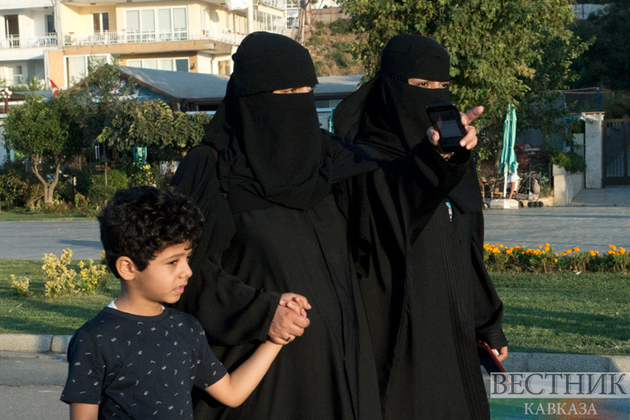Richard Bennett, the United Nations Special Rapporteur on the Situation of Human Rights in Afghanistan recently confirmed that Afghanistan “continues to experience a serious crisis and urgent action is needed from all parties to avert a further deterioration of the situation, Modern Diplomacy writes.
The crisis is due to the myriad of problems Afghanistan faces. Decades of conflict, corruption and political instability had already left the country poverty stricken and vulnerable. But the return of the Taliban*, and the withdrawal of international funding and freezing of central bank assets as a result, tipped the country over the edge.
This resulted in a liquidity crisis and economic collapse that plunged tens of millions of Afghans into hunger and poverty. This comes on top of drought, the coronavirus pandemic and natural disasters that have devastated the country amid a global food crisis and high prices for key commodities.
The economic collapse has led to a severe jobs crisis, with the UN Development Programme reporting that nearly 700,000 jobs have vanished. This was due to both uncertainty from the economic downturn as well as the Taliban* restrictions women’s participation in the workforce. Removing women from the workforce has cost the economy $1 billion, or 5% of GDP.
The withdrawal of international donor funding has also left Afghanistan’s healthcare system on the brink of collapse. Due to a lack of funding, doctors and nurses have not been paid and there is a shortage of medical supplies. Considering millions require medical assistance due to malnutrition, and the outbreak of coronavirus, measles and diarrhea, this is making a bad situation worse.
For these reasons, Afghanistan is experiencing one of the worlds worst humanitarian crises. The World Food Organisation estimates that more than 24.4 million people need humanitarian assistance and that half the population of an estimated 38.9 million faces acute food insecurity. Additionally, 89% of the population faces insufficient food consumption, with female- and male-headed households spending 95% and 91% of their income on food respectively. The UN Office for the Coordination of Humanitarian Affairs also estimates that 4.7 million Afghans will suffer from acute malnutrition in 2022, an increase of 21% from 2021.
The Taliban*, as the de facto authorities of Afghanistan, have control over the country and therefore have a responsibility for fulfilling their obligations under international human rights and humanitarian law. Whether they are internationally recognised as the legitimate government is inconsequential.
Put simply, the Taliban* can help to address the crisis by attempting to govern the country, something they have so far been unwilling to do. Since August 2021, the Taliban* have struggled to transition into a functioning government and are yet to publicly propose how they will tackle the country’s economic and humanitarian problems. Instead, the Taliban* has reverted their usual methods of corruption and threats of violence. This is not sustainable. The Taliban* can help solve the crisis by allowing women back into the workplace so they can provide for their families and by respecting the human rights of women, ethnic minorities, and former government workers. This will lead to better relations will the international community and the foreign aid that comes with it.
The international community also has a role to play by providing much-needed funds for humanitarian assistance and support. The UN High Commissioner for Human Rights has said that Afghanistan needs more than $8 billion in funding to provide food, agriculture support, health services, nutrition, water and sanitation. The World Food Programme has also said that it urgently requires $1.1 billion to continue delivering food for the next 6-18 months.
A solution is for the United States to unfreeze $9.5 billion in Afghan Central Bank assets and make this available to UN organisations, such as the World Food Programme or the UNHCHR, to provide much needed assistance at ground-level. This would go a long way to ensuring that Afghans have enough food and medical supplies.
Funds should also be supplied to ensure that healthcare workers, teachers and public servants are paid, thereby being able to feed their families and contribute to the economy. Additionally, the international community should provide sanctions relief to private businesses and commercial transactions to allow the economy to slowly rebuild.
These are all relatively simple solutions that can be achieved so long as the international community is willing. Afghanistan is now facing its second winter under the Taliban* and the situation continues to deteriorate. Both the Taliban* and the international community have an obligation to solve the humanitarian crisis. Doing so will allow Afghans, who have suffered for so long, to rebuild their country and live their lives with the dignity that they deserve.
*Taliban - the movement banned in the Russian Federation






